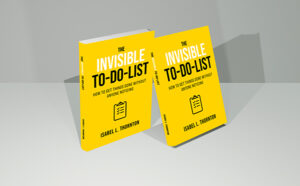We live in a world designed to make life easier, faster, and more comfortable. One-tap deliveries. Cars that park themselves. Personalized streams of entertainment ready before we even ask. But if all this comfort is supposed to make us happy, why are so many of us feeling more anxious, restless, and disconnected than ever?
The answer might surprise you: it’s not the hardships that hold us back—it’s our growing intolerance for them.
In her compelling new book, Habit Hacks for Happiness: How to build habits that actually serve you, author Tess Alder challenges a deeply held modern belief: that comfort equals happiness. Instead, she reveals how our addiction to ease may be silently sabotaging our growth, purpose, and well-being.
The Comfort Trap: Why Easy Isn’t Always Better
Imagine your brain as a garden. What happens if it’s never exposed to wind, heat, or bugs? It becomes fragile. The same is true for people. When everything in life is curated for convenience, we stop developing the emotional and mental strength that comes from working through challenges.
We’ve been trained to treat any discomfort as a problem to be fixed—awkward conversations, boredom, failure, stress, uncertainty. We numb it with screens, snacks, and scrolling. But this avoidance creates a deeper issue: the erosion of resilience.
In Habit Hacks for Happiness, Alder calls this “comfort inflation.” Each year, the threshold of what we expect to be easy gets higher. We get annoyed when apps load slowly, when a delivery is late, or when we don’t get immediate feedback on a social post. These aren’t major life issues—but our reaction to them reveals how low our tolerance for discomfort has become.
Comfort Feels Good—But Grows Nothing
Let’s talk science for a second. Every time you swipe, scroll, or binge-watch a show, your brain gets a little dopamine hit. It feels like you’re accomplishing something. But you’re not. It’s just a loop of artificial satisfaction.
This endless digital novelty rewires the brain to seek quick rewards, not deep fulfillment. The result? We get better at avoiding discomfort and worse at handling real challenges—like emotional conversations, professional growth, or personal reflection.
In fact, avoiding discomfort actually increases long-term anxiety. As Alder writes, “Without friction, we stop learning what we’re capable of.”
Growth Happens in the Hard Stuff
Here’s the paradox: while comfort numbs, discomfort sharpens. It’s not the enemy. It’s the gateway.
Studies on neuroplasticity show that the brain rewires and strengthens itself when exposed to manageable stress. Think of a new skill like public speaking, learning to code, or trying to resolve a tough relationship issue. It’s awkward, sometimes painful. But it’s exactly that friction that forces your brain to adapt, grow, and become more capable.
As Alder puts it, discomfort is like “a personal trainer for your mind.” Just as muscles need resistance to grow, your mind needs challenge to evolve.
So What Can You Do About It?
Start small. You don’t need to climb Everest or quit social media overnight. Building tolerance for discomfort is a habit—and like any habit, it grows with repetition.
Here are five habit hacks to reverse comfort inflation and reclaim your resilience:
- Pause Before the Scroll: When you feel the itch to grab your phone during a dull moment, pause for 30 seconds. Ask: “What am I avoiding?”
- Take a “Discomfort Lap”: Walk outside when it’s a bit cold or rainy. Feel the sensation. Embrace it as training, not punishment.
- Lean Into Boredom: Set a 10-minute timer and do absolutely nothing. Let your mind wander. That silence is where creativity is born.
- Have One Awkward Conversation: Instead of ghosting or avoiding conflict, say what needs to be said. You’ll feel awkward, yes—but also empowered.
- Choose Effort Over Ease Once a Day: Whether it’s cooking instead of ordering in, walking instead of driving, or saying “no” when it’s easier to say “yes,” each micro-choice rewires your tolerance for challenge.
Reclaim Your Power by Reclaiming Discomfort
The culture of convenience teaches us to fear struggle. But the truth? Your strength lives in the struggle. Your wisdom lives in the reflection that follows boredom. Your purpose is waiting on the other side of discomfort.
As Tess Alder beautifully writes in Habit Hacks for Happiness, “Each escape from discomfort is also an escape from the chance to discover what you’re truly capable of—and who you might become if you lean into the hard stuff.”
If you’re tired of feeling stuck, unmotivated, or numb—maybe what you need isn’t more ease.
Maybe what you need… is a little more challenge.
Start Your Habit Revolution Today
Want more science-backed strategies for turning discomfort into your greatest advantage? Grab your copy of Habit Hacks for Happiness: How to build habits that actually serve you by Tess Alder and discover practical tools to grow stronger, smarter, and more fulfilled—starting today.
Author

Alan Saunders is recognized for producing books on Artificial Intelligence and digital wellness, where playful narratives and clear insights are featured. Guidance for concerned parents hoping to safeguard children in an ever-evolving digital world is often emphasized in his writing. Complex AI concepts and practical safety measures are presented in a manner that blends intrigue with accessibility, allowing readers to explore technology’s possibilities while maintaining peace of mind.





